16 Ways To Give Yourself Some Much-Needed Self-Care After a Year of Living in a Pandemic

As we hit the one-year mark of living with the coronavirus pandemic as part of our reality, it’s more important than ever that we keep taking care of ourselves — physically and mentally.
Here are a few ways to care for yourself during these stressful times.
Last updated: Mar. 12, 2021

Meditate
Meditation is scientifically proven to lower stress levels. There are a number of apps you can turn to, or you can meditate on your own.
Free: Self-Care Ideas You Can Try Without Spending Any Money
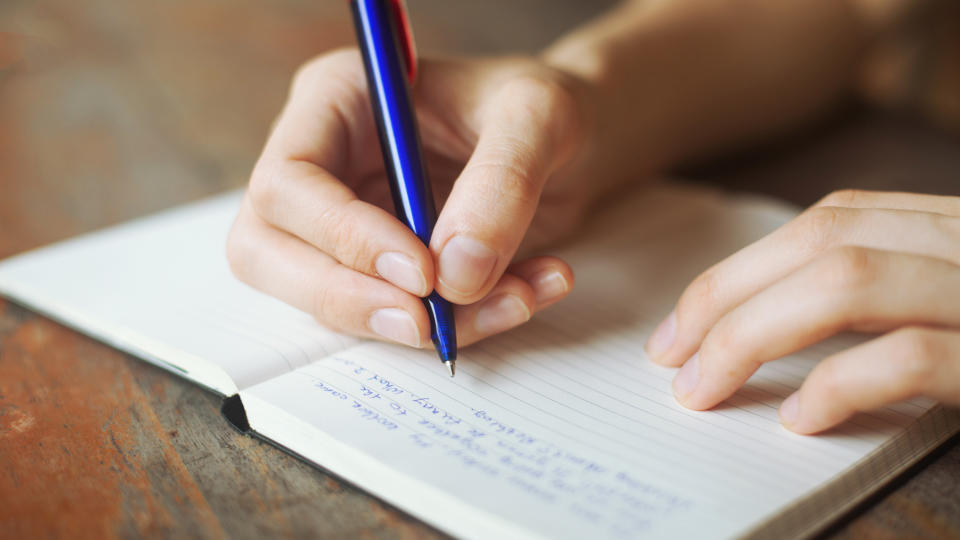
Practice Gratitude
No matter what your circumstances are, you can surely find things to be grateful for. Simply taking a moment to concentrate on what you are thankful for or writing it down in a journal can aid you in regulating stress and can reduce feelings of anxiety and depression, according to PositivePsychology.com.
See All Our Coverage: COVID’s Financial Impact After 1 Year

Take an Online Yoga Class
Yoga combines physical movement, mindful breathing and meditation for a powerful practice that can help ease depression and other mental health conditions. You can find plenty of yoga videos on YouTube that you can do at home.
Talk Back: Do You Think the Minimum Wage Should Be $15? Take Our Poll

Have an At-Home Spa Day
Feeling good physically can spill over into how you feel mentally, so now is a good time to treat yourself to a relaxing spa day at home. Light some candles, take a soak in the tub, use your favorite face mask or do whatever else you need to feel fully pampered.
Treat Yourself: Why It’s OK To Keep Your Daily Splurges in 2021

Buy Yourself Flowers
A study conducted by behavioral researchers at Rutgers University found that flowers can elevate your mood. The study compared the reactions of people who received a decorative candle, a fruit basket or a floral bouquet and found that the bouquet was met with the most heartfelt smiles initially. Furthermore, three days after the delivery, the flower recipients were still feeling happier than those that received the other gifts.
The next time you go on a grocery run, add a bouquet to your cart for an instant mood lift.

Get Outside for a Daily Walk
Walking outside is one of the safest activities you can do amid the pandemic, and it has mental health benefits too.
“It has a positive impact on mental and emotional states,” Hillary Cauthen, Psy.D., an executive board member for the Association for Applied Sport Psychology told The Oprah Magazine. “Walking releases dopamine and endorphins in the brain, which produce feelings of euphoria.”
And if you walk quickly enough to increase your heart rate, you’ll get even more of a mood boost.
“It changes brain chemistry to assist in reducing stress and anxiety by increasing the availability of anti-anxiety neurochemicals, including serotonin,” Cauthen told the magazine.
More Options: 26 Tips To Treat Yourself More in 2021
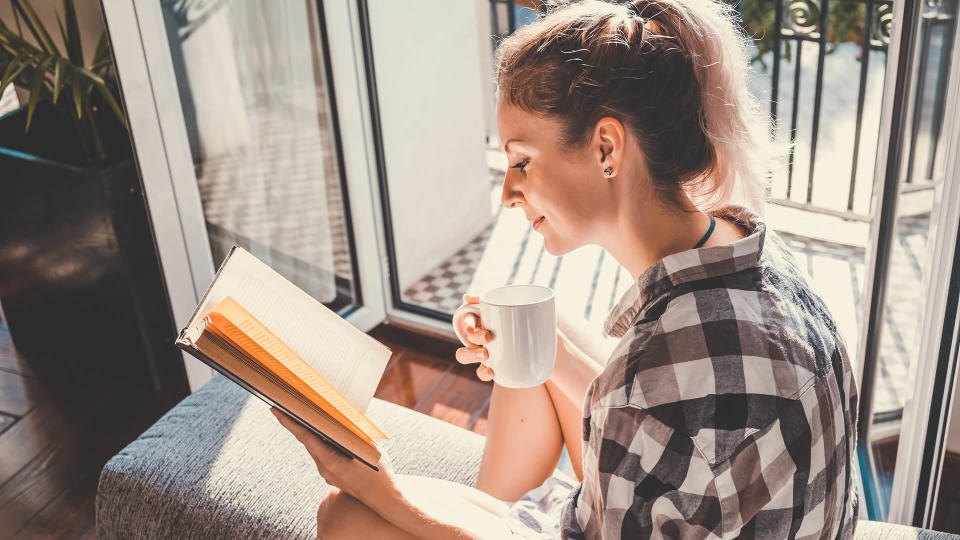
Read Something That Has Nothing To Do With the Pandemic
We are constantly being inundated with updates about the coronavirus, from case numbers to vaccine rollout plans, which can exacerbate any anxiety you are feeling. Read a book, magazine or long-read online that has nothing to do with the coronavirus so you can get a mental break from the 24/7 news cycle.

Reduce Your Media Consumption
On that note, make a conscious effort to reduce your media intake. You don’t need to click on every news alert that pops up on your phone or read every article that you scroll across, and you certainly don’t need to spend hours perusing your Twitter feed.
“If you are feeling overwhelmed by media, strip it down to its core purpose — providing information — and see how efficiently you can get the amount of information you actually need each day,” life coach Kendra Levin wrote in a post for Psychology Today.
Set timers for how long you spend on Twitter, turn off news alerts or use an app like Apple’s Screen Time to set limits on how much time you spend on news apps.
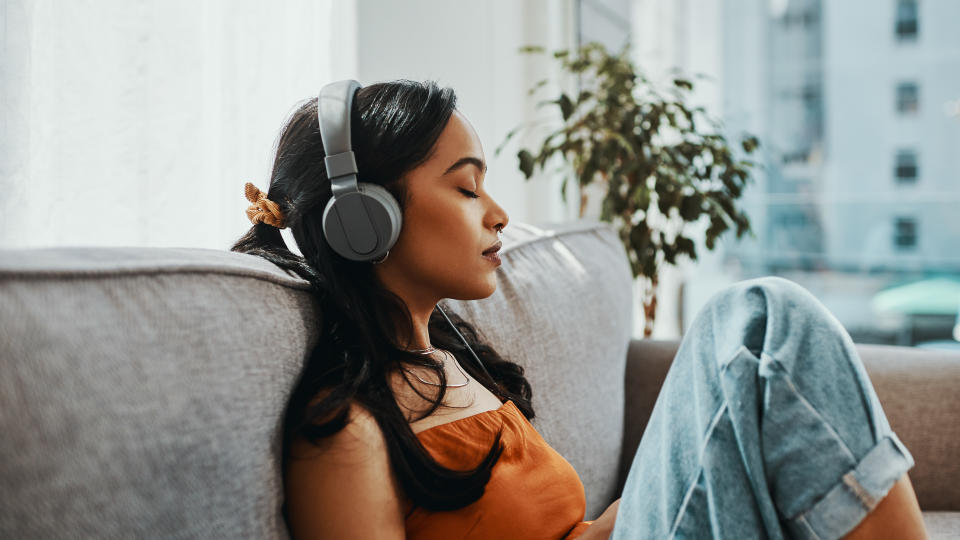
Take a Mental Health Day
Most American workers don’t use up all of their vacation days during the typical work year, and now that many are working from home and limiting travel, workers have been using vacation days less frequently than before. The ironic part is that many are under more stress than ever.
If you have unused vacation days, consider taking a mental health day (or two).
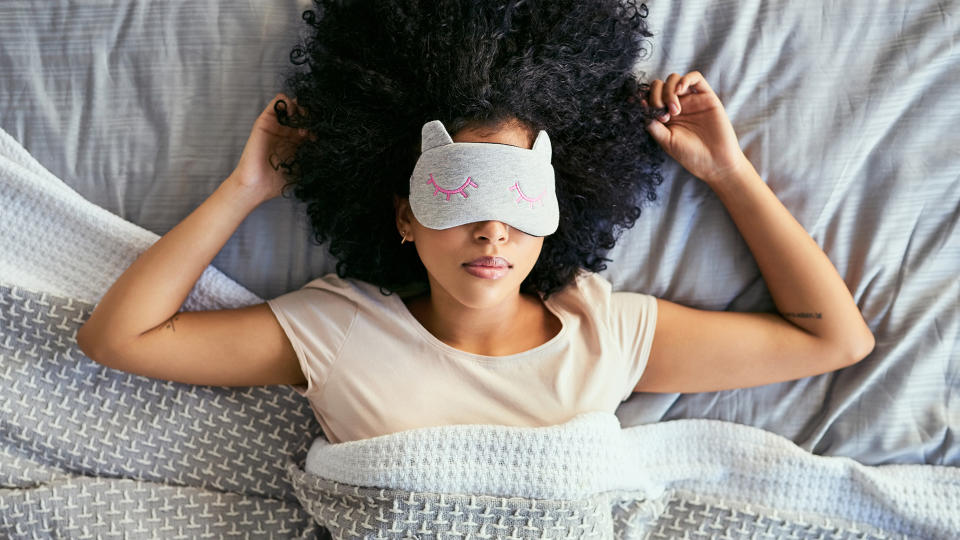
Make Sure You're Getting Enough Sleep
When your body is deprived of sleep, your brain activity mirrors that of brain activity associated with anxiety disorders, according to Psychology Today. That means that a lack of sleep can make you feel more anxious than you need to be.
Adults typically need seven to nine hours of sleep, according to the Mayo Clinic. Stick to an early bedtime to make sure you’re getting enough shut-eye during these stressful times.

Cook or Bake Your Favorite Treat
Spending some extra time in the kitchen can be good for your mental health. According to a Wall Street Journal report, some healthcare clinics and counselors use cooking or baking as therapy tools for people suffering from depression, anxiety and other mental health issues. Not only can the process be soothing, but you’ll have a delicious meal or baked good at the end, so it’s really a win-win all around.

Learn Something New
Channel any frenetic energy you have into learning something new. That can mean cultivating a new skill, consuming new information or seeking out intellectual challenges. Focusing on learning has been proven to ease the effects of stress, including negative emotions and burnout, Harvard Business Review reported.

Binge Watch Your Favorite Guilty Pleasure Show
Turn off the news and put on Netflix instead — binge-watching is actually good for your mental health.
“A binge can work like a steel door that blocks our brains from thinking about those constant stressors that force themselves into our thoughts,” Dr. John Mayer, Ph.D., a clinical psychologist at Doctor On Demand, told NBC News. “Binge-watching can set up a great boundary where troubles are kept at bay.”

Listen To an Uplifting Playlist or Podcast
Sometimes you just need to tune out the world. Music is a known stress reliever, so put on an uplifting playlist whenever you start feeling preoccupied with worries. Or listen to an inspiring podcast.

Phone a Friend or Family Member
Talking to loved ones can also be a stress reliever. Whether you want to talk out your anxieties about the pandemic or talk about something completely unrelated, phoning a friend or family member can be a form of self-care.
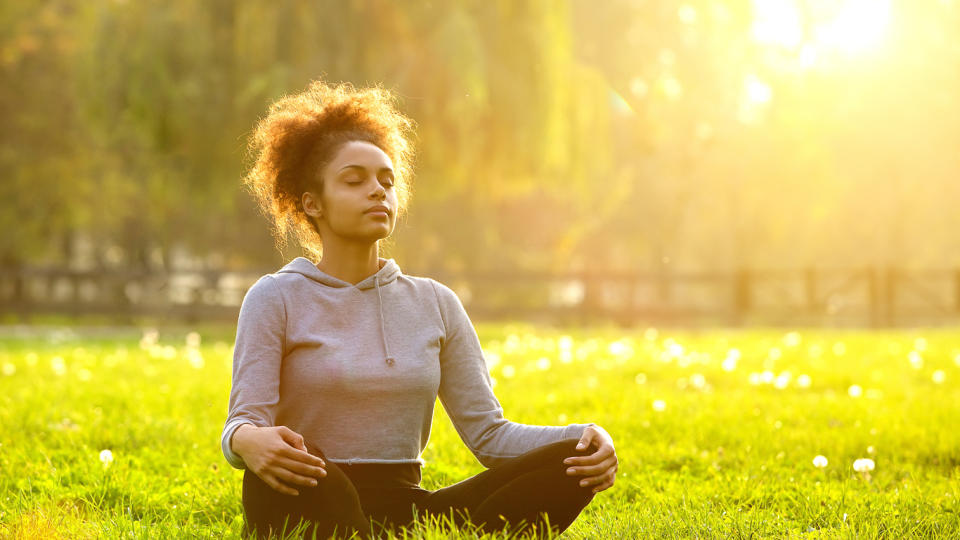
Stick With Your Usual Routines
When we’re feeling anxious or stressed out, it’s easy to get wrapped up in those feelings, which can be disruptive to our normal routines.
“Don’t let the intensity of this moment be an excuse for letting go of the habits and practices that you’ve worked so hard to build, whether for your creative work or your life in general,” Levin wrote in the Psychology Today post. “A dedicated routine for writing, taking a walk every day, meditating regularly — whatever you’ve built for yourself, you built because it was important to you, and it likely still is. Don’t let adrenal fatigue erode that.”
More From GOBankingRates
This article originally appeared on GOBankingRates.com: 16 Ways To Give Yourself Some Much-Needed Self-Care After a Year of Living in a Pandemic
